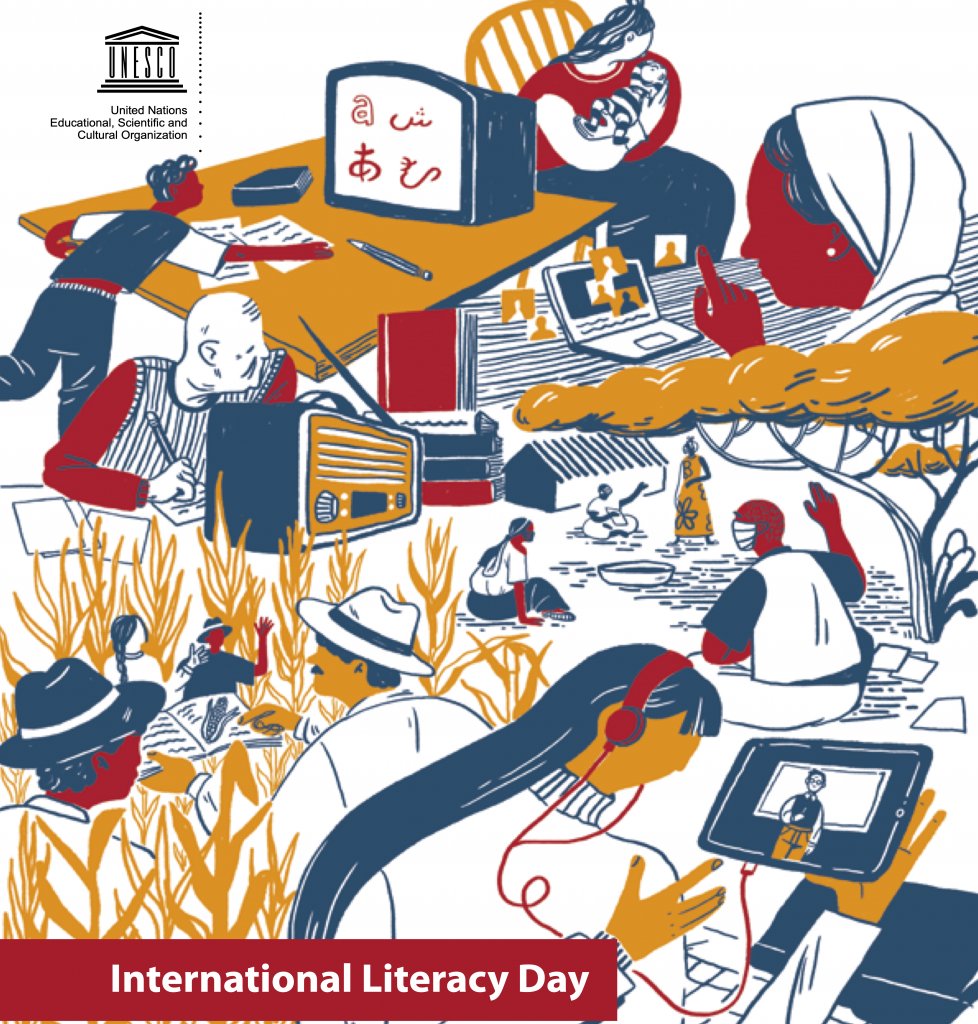Tuesday September 8 was International Literacy Day 2020. UNESCO marked the day by holding a global meeting on ‘Literacy teaching and learning in the COVID-19 crisis and beyond’. Globally, basic literacy skills and more than 617 million children and adolescents are not achieving minimum proficiency levels in reading and mathematics. During the initial phase of the pandemic, schools were closed down in more than 190 countries, disrupting the education of two thirds of the world’s student population. The COVID-19 crisis has magnified existing literacy challenges, deeply affecting schooling and lifelong learning opportunities including for youth and adults with no or low literacy skills.
UNESCO’s global meeting brought together international experts in literacy teaching and learning, with the aim of enhancing understandings about the impact of the COVID-19 crisis on teaching and learning of youth and adult literacy and reflecting on reimagined teaching approaches in times of the COVID-19 crisis and beyond.
The CEN’s Director, Michael Thomas, contributed to a meeting session on ‘Reimagined literacy teaching and learning and the role of educators’. He presented the neuroscience perspective and addressed the question of whether neuroscience points to any differences in learning ability in youth and adults that may impact literacy learning, and provides useful knowledge to educators.
Professor Thomas made the following points:
- The adult brain has lifelong plasticity, but may need more practice to make skills automatic, and modified teaching methods to help with perceptual learning.
- Adult learners need personal relevance, peer support networks, and community buy-in to motivate the required levels of practice.
- There can be wider barriers to success than individual brains, including education, policy, and cultural factors.
- The COVID-19 crisis is likely to be largely negative for adult learners but there may be opportunities to build back better through technological solutions to augment teaching. However, particularly in rural areas, such opportunities crucially depend on the strength of the IT infrastructure.
Mr. David Atchoarena, Director of UNESCO’s Institute for Lifelong Learning, who was chairing the session, drew the following conclusions:
- The COVID-19 crisis has made existing challenges in global literacy teaching and learning worse
- The response to these challenges should leverage new knowledge emerging from fields such as neuroscience, AI and data analytics, as well as building on the established understanding of teaching and learning principles
- The financial impact of the crisis presents new challenges regarding the financing of education, both in terms of each country’s percentage spend on education and the amount targeted towards literacy. How can we make sure that literacy is prioritised in this new financial climate, and that funding still reaches the most marginalised in society?
See here for the CEN’s report, commissioned by the World Bank, on neuroscience and adult literacy programmes published earlier this year.

